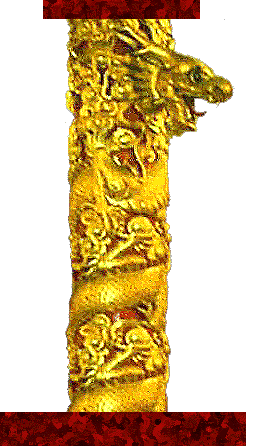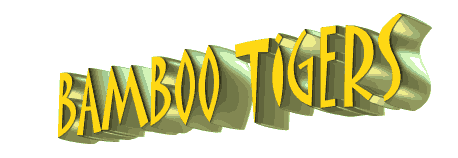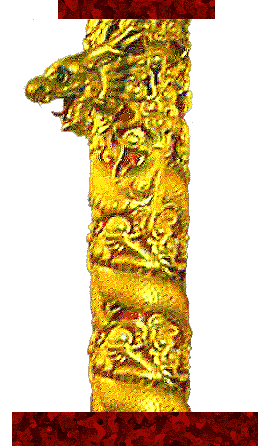| |
The two detectives took Stuart to the back door of Room 442, unlocked the handcuffs, and sat him down at a table in the small interview room adjoining Lieutenant Murphy's office, at exactly 12:08.
Foley introduced him to Ron Schneider.
By prior arrangement, Stuart was to be officially interrogated by Schneider and Dan Foley. Considering the relationship already developed between the boy and "Dan," Foley was a natural for the job. This did not discount the possibility of Stuart's feeling betrayed by his "friend," but such was not to be the case.
Present in the outer office at that time were Lieutenant Murphy, the Force's "gal Friday" Jeannie Blasdell, and Charles Schmitt of the A.T.F.
Also present to supervise and co-ordinate the activities of the day was Hugh Levine. The Gang Task Force office had been set up as a command post.
Levine, a veteran of the New York City D.A.'s office in Manhattan, was used to an assistant district attorney taking the suspect's confession. If the detectives arrested someone, Mirandized him, and he wanted to talk, the D.A.'s took the statement. The reasoning was that the detectives knew best how to make a man talk, and the D.A.'s knew how to distill the most useful information from him. In taking a statement, the first responsibility is to get a full confession, a complete inculpation of the defendant, and the second is to tighten it up by eliminating defenses. In Manhattan, interrogating homicide suspects was an assistant D.A.'s stock in trade.
The procedure was generally different in San Francisco, where the arresting officers or detectives usually did the questioning. While waiting for Foley and Mollat to arrive with Stuart, Levine had briefed Schneider on the things he would like to see come out of the interrogation.
Then they came in with Stuart. Levine had only seen photographs of him. His initial impression was that the boy was "awfully husky."
Truly, Stuart didn't fit the stereotype of a slight Chinese with matchstick wrists. He was a relatively tall and beefy, albeit not fat, young man. When he entered the room, his immature, tear-streaked face belied the maturity suggested by his frame. He was a kid just arrested for multiple murders. His demeanor proclaimed it--head hung down, defeated, docile.
In the interview room, Schneider asked Foley if he had advised Stuart of his rights. "Yes, when first arrested."
Schneider informed Stuart that "we want to question you about the Golden Dragon; we know you were involved as one of the two shotgunners; Robert [Gan Wah] Woo told us about the conversation you had with him in the 'west campus' area; we have a tape of that conversation."
Stuart flung his face down on the table and again burst into tears. "I knew it! I knew it! I did it! I did it!" Looking up: "How long will I have to go to jail?"
"If found guilty, you will most likely have to go to jail, maybe for 20 or 30 years," said Schneider. "Five people were killed, and 11 people were wounded. It was a very serious crime."
Stuart cried even more intensely. "I knew it," he wept, "I knew you knew all about the Golden Dragon killing!"
Several times, Schneider lifted up his notebook to make notes on what was taking place, but every time he picked up his pencil, Stuart's eyes followed it to the page and began to weep fresh tears. Then the boy would calm down for short periods, in which he spoke of his part in the killing, and the parts of others involved. When he spoke of being inside the restaurant, he was asked specific questions about the positions occupied by himself and the other shooters. He drew diagrams on a piece of cardboard torn from a box in the interview room.
Stuart also made random comments not exclusively a propos of the parts of the confession where he made them: "I knew Robert [Gan Wah] was working for you; Robert is trying to help me."; "I didn't aim at anyone; I fired the first shot into the table; I aimed the second shot over his head."; "Did I shoot anyone? If I killed someone, tell me!"; "I was going to turn myself in right after the Golden Dragon, but I was scared; they 'fished' me; I was scared."; "Will the judge hear what I'm saying?"
He was told that "the judge" would hear everything in due time.
"I want him to hear everything. I told my girlfriend about what I did. I told my friend, Gin Lew; he knows a little."
All this time, for more than an hour, Stuart cried intermittently. The cops sent out for his brand of cigarettes (Viceroy) and coffee. At 1:20, they broke for lunch.
Schneider and Foley had tried to tape the first session, but during those very moments, construction workers were removing the marble slabs veneering the outside walls, in preparation for building an annex to the Hall of Justice to house several new superior and municipal courtrooms. The walls rattled. The table shook.
"Christ," complained Schneider in a loud voice, "get somebody to tell those guys to stop it! We can't tape!"
The small group outside the room could hear his complaint over a speaker enabling them to listen to the goings-on in the interview room. Murphy began making frantic calls to Clem D'Amicis and everyone he could think of. He finally reached Fred Whisman, who was Executive Director of the Courts, as well as the Jury Commissioner.
Ironically, one of the reasons the Gang Task Force had selected March 24th for this arrest and others was because it was Good Friday, a day when, at least in the afternoon, many people attended church services to celebrate the religious solemnity of the day. No explosive competition had been expected in counterpoint to the Force's own plans to make it a dynamite day.
Looking forward to the ending of an overlong Lenten fast dating back to September 4, 1977, the Gang Task Force wanted to scramble all its eggs in one big omelette that day. It turned out to be surprisingly tasty in spite of the fact that it was made with three bad eggs--Bert Rodriguez, Wayne Yee, and Stuart Lin. It could have been a four-egg omelette. That evening, with Stuart's confession in hand, Mike Mullane and Leon Crouere raced off to Stockton to play the tape to Peter Ng at the California Youth Authority. The next morning, they phoned that "the Hundred-Year Egg" hadn't budged an inch. Humpty Dumpty had glued himself to the wall of silence, and there he would stay.
The idea of a simultaneous strike on four fronts had been conceived as a means of catching all the culprits off guard. Stuart would confess; Peter might come unglued when confronted with this fact; Bert, on his way into the frying pan, would perhaps talk about the events of that night at his house when the Golden Dragon was launched, and Wayne might uncoil enough to spit out some interesting information about the guns and his Joe Boy associates.
Of the other arrest teams dispatched on March 24th, John McKenna and Ed Rudloff, of the D.A.'s office, along with Jim Smith and other officers of A.T.F., took off for Santa Rosa that morning to arrest Bert Rodriguez on the dynamite charge. A.T.F.'s Ted Royster and other personnel stayed in town to ferret out Wayne Yee. But the news was slow in coming. Levine sat by the telephone waiting, concentrating on the confession of Stuart Lin.
At 1:55, after lunch, the second session with Stuart began. Whisman had given the contractors the afternoon off; their obtrusive noise outside had stopped, and Stuart was almost normal then. His crying jag had more or less come to an end. By the end of this interview, at 2:46, he was very relaxed, even giving Foley's pipe a try, for laughs. It was obvious that he still considered Foley his friend. Things between them were as they had been before, now that he had unburdened himself of the great weight of his hidden guilt.
He asked again how long he might have to go to prison. "A long time," Foley answered. Stuart looked miserable. "Maybe for the rest of my life?" The cop shook his head and admitted honestly, "I don't know."
Stuart gave it some thought, then asked, "What's it like in jail?" They discussed prison life, and Foley added: "There are a lot of programs in prison, opportunities for schooling. You can get an education. If you go in with the right frame of mind, and make the best of it, someday when you get out, you can make something of yourself. Do your own time, don't get involved with the gangs in there, don't be a disturber, and you'll be O.K."
Foley was impressed by Stuart's positive response to these ideas. A heavy load had obviously been lifted from the kid's shoulders.
One of the things Levine had asked Ron Schneider to look out for in the Lin confession was self-serving statements supportive of a defense of duress. It had not struck him as significant in Stuart's case up to then, for no hint of it had come from Gan Wah's numerous reports. As far as the Gang Task Force knew, no one had forced the kid to do anything. Still, Levine had asked Schneider to keep an ear out for the duress idea while Stuart talked, and had admonished him to be extremely careful not to throw that sort of ball out for Stuart to catch and run with.
The lack of previous hints notwithstanding, Stuart claimed during the confession that he had neither wanted to go to the Golden Dragon that night, nor had he wanted to shoot anybody.
"What do you think they would have done to you if you tried to escape?"
"If I try to escape, I think I got shot,"
When Levine heard that, and several other similar remarks Stuart made thereafter, the attorney had some private thoughts: I don't think he could have made it all up that quickly on the spot, so there are three possibilities. One is that it really happened that way. Another is that it is a self-serving fabrication he's made up at some time after the crime in order to be able to live with the memory of what he's done. And a third is that he has contrived duress the way he contrived his alibi. I would say it's number two: something he made up after the incident to try to make it easier to live with.
Levine did not then, or ever, fully concede that Stuart felt overly threatened by his Joe Boy associates on the night of the Golden Dragon. But duress had been mortared into the superstructure of Stuart Lin's confession, and Levine would have to deal with it.
The interesting thing about a duress defense, the canny future prosecutor of the Golden Dragon trials immediately realized, was that with something big, fat, and juicy like that in his confession, it didn't seem all that likely that a smart defense attorney would plead Stuart guilty and make a deal in lieu of a trial. Levine warmed to that thought. He very much wanted Stuart to go to trial--as an adult.
When it was all over, at 2:50 in the afternoon, Stuart had to go to the bathroom. He then asked to see a priest. A Chinese priest from the Church of St. Francis of Assisi, Father Lee, came at 3:22 and left 18 minutes later.
Stuart then wanted to see his girlfriend.
He gave Foley a letter asking the girl to come. It was written, naturally, in Chinese: "I love you if you also love me. I could go to jail because of the Golden Dragon. If you love me, please come to see me. Please do not forget what we two experienced. Don't be heartbroken over me. I love you, hsiao ping [little wife]." Signed, in English script: "Stuart Lin."
The faithful young lady arrived at 5:20 and stayed two minutes longer than the priest had. She was sorrowful, but relieved.
He had said in his confession that he was just waiting to be arrested: "I know some day cop come and get me for the jail." That day had come. He had begun it with Foley and Mollat in the car at Eddy Street and Larkin. It had nearly destroyed him. It ground him down until he had seemed ready to give it all up. But the resiliency of youth had brought him to his feet again before the day was done, and he was at least able to face his girl.
Foley escorted him upstairs to the City Jail at 6 o'clock. Thirteen days past his 18th birthday, Stuart would be held there until his hearing to determine his fitness to be tried as an adult. He had been, after all, a juvenile in the law's eyes at the time of the Golden Dragon.
| |
|









